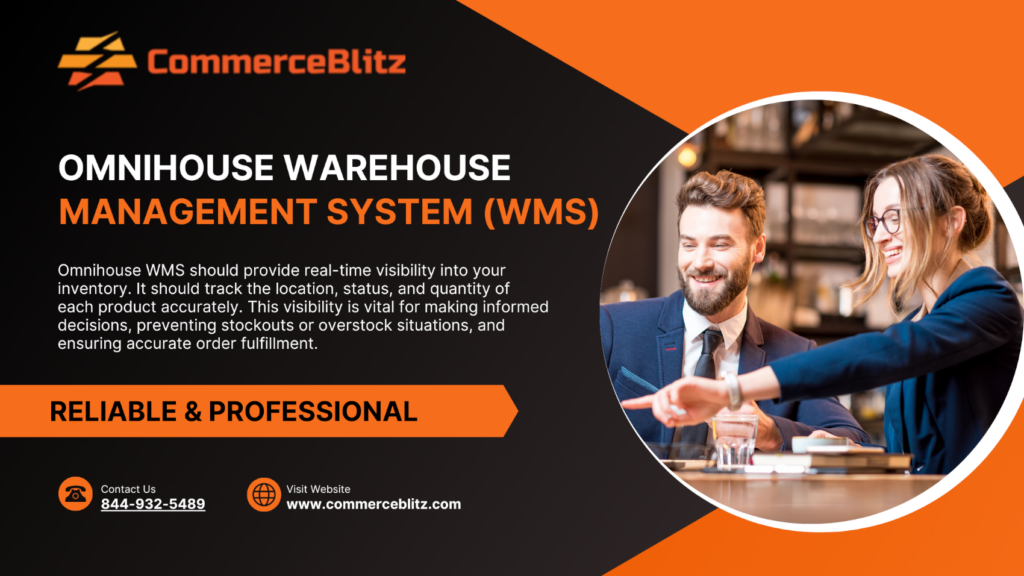What To Look for in an Omnihouse Warehouse Management System (WMS)
In the ever-evolving world of logistics and supply chain management, an Omnihouse Warehouse Management System (WMS) offers a comprehensive solution for businesses seeking to streamline their warehouse operations. Omnihouse WMS is specifically designed to cater to the dynamic needs of modern warehouses, incorporating cutting-edge technology and innovative features. In this blog post, we will explore the essential factors to consider when selecting an Omnihouse Warehouse Management System.
Omnihouse WMS should be adaptable to your business’s growth. Ensure that it can scale seamlessly as your warehouse operations expand. Look for features that allow you to customize workflows and processes to fit your unique requirements. The system should grow with your business without requiring significant disruptions or costly upgrades.
Your warehouse operations are part of a broader supply chain ecosystem. It’s crucial that your Omnihouse WMS integrates smoothly with other systems like your Enterprise Resource Planning (ERP) software, e-commerce platforms, and third-party logistics providers. This integration ensures real-time data sharing, minimizes errors and enhances overall efficiency.
A user-friendly interface is key to maximizing the benefits of Omnihouse WMS. Your warehouse staff should find it intuitive and easy to use. A clean and well-designed interface reduces training time, minimizes errors, and enhances overall productivity.

Omnihouse WMS should provide real-time visibility into your inventory. It should track the location, status, and quantity of each product accurately. This visibility is vital for making informed decisions, preventing stockouts or overstock situations, and ensuring accurate order fulfillment.
To stay competitive, look for Omnihouse WMS features that support automation and robotics. Features like barcode scanning, RFID technology, and automated data capture not only improve accuracy but also boost the speed of picking, packing, and shipping processes.
Data is a valuable asset in modern warehouse operations. Your chosen WMS should offer advanced reporting and analytics capabilities. This allows you to monitor key performance indicators (KPIs), track trends, and make data-driven decisions. Customizable reports and real-time data access are crucial for continuously optimizing your warehouse operations.
In an increasingly mobile world, mobile accessibility is a significant advantage. Omnihouse WMS should allow your staff to access the system from smartphones or tablets. This enables them to perform tasks, check inventory, and manage orders on the go, enhancing flexibility and responsiveness.
Evaluate the level of customer support and training provided by the Omnihouse WMS provider. Responsive customer support can quickly address issues and ensure that your operations run smoothly. Comprehensive training programs are essential for equipping your staff with the skills to maximize the system’s potential.
While cost is a consideration, it should not be the sole deciding factor. Calculate the total cost of ownership, including implementation, ongoing maintenance, and potential expansion costs. Evaluate the expected return on investment (ROI) based on efficiency gains, error reduction, and improved customer satisfaction.
Selecting the right Omnihouse Warehouse Management System is a critical decision for businesses seeking to optimize their warehouse operations. By considering factors like scalability, integration capabilities, user-friendliness, real-time inventory visibility, automation, reporting and analytics, mobile accessibility, support, and ROI, you can make an informed choice that aligns with your business goals. Investing in a robust Omnihouse WMS can lead to enhanced efficiency, cost savings, and improved customer satisfaction, making it an invaluable asset for your supply chain.
Ready to take the next step? Connect with us today and discover how CommerceBlitz can revolutionize your business operations.